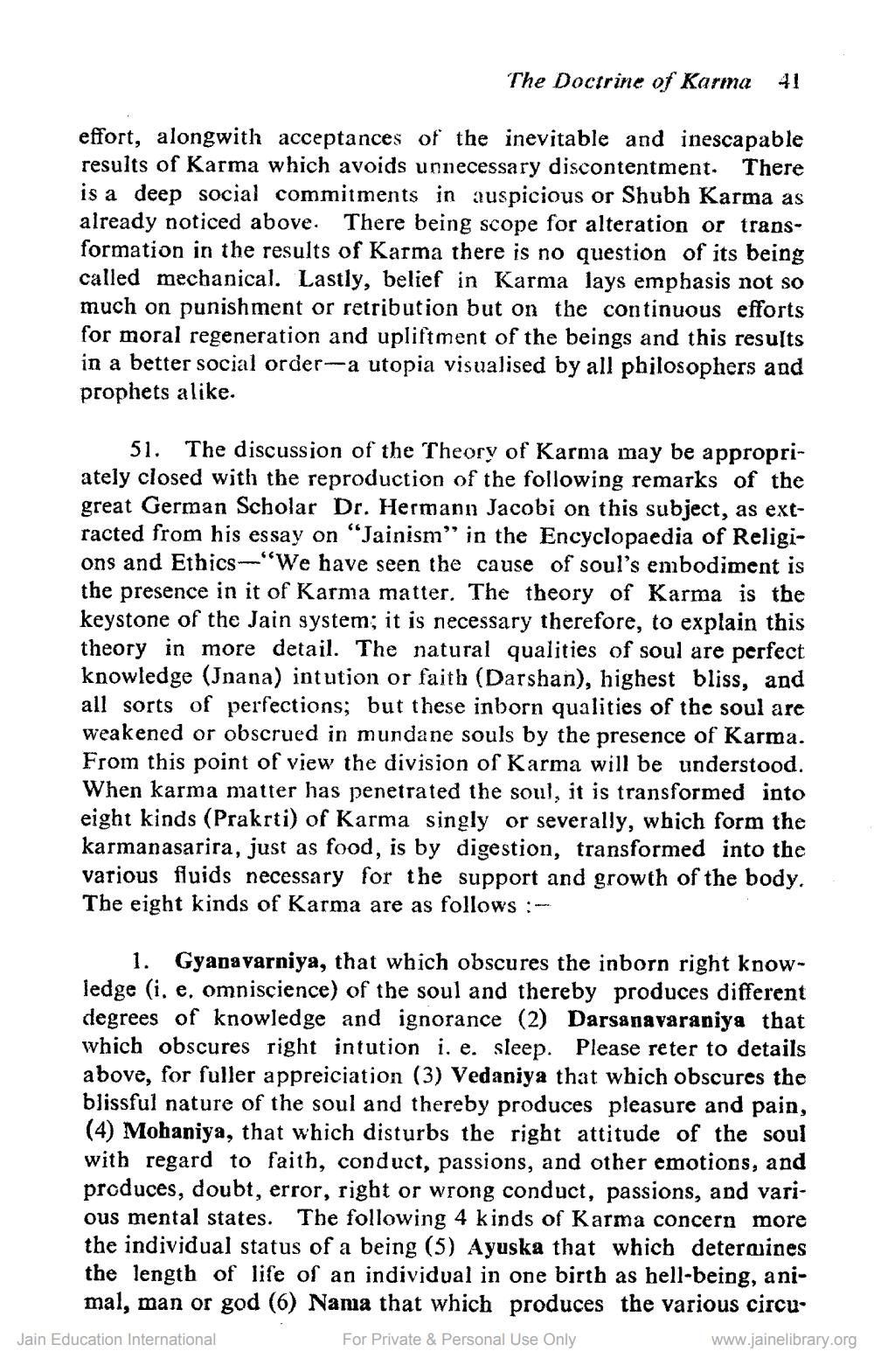________________
The Doctrine of Karma 41
effort, alongwith acceptances of the inevitable and inescapable results of Karma which avoids unnecessary discontentment. There is a deep social commitments in auspicious or Shubh Karma as already noticed above. There being scope for alteration or transformation in the results of Karma there is no question of its being called mechanical. Lastly, belief in Karma lays emphasis not so much on punishment or retribution but on the continuous efforts for moral regeneration and upliftment of the beings and this results in a better social order-a utopia visualised by all philosophers and prophets alike.
51. The discussion of the Theory of Karma may be appropriately closed with the reproduction of the following remarks of the great German Scholar Dr. Hermann Jacobi on this subject, as extracted from his essay on "Jainism" in the Encyclopaedia of Religions and Ethics-"We have seen the cause of soul's embodiment is the presence in it of Karma matter. The theory of Karma is the keystone of the Jain system; it is necessary therefore, to explain this theory in more detail. The natural qualities of soul are perfect knowledge (Jnana) intution or faith (Darshan), highest bliss, and all sorts of perfections; but these inborn qualities of the soul are weakened or obscrued in mundane souls by the presence of Karma. From this point of view the division of Karma will be understood. When karma matter has penetrated the soul, it is transformed into eight kinds (Prakrti) of Karma singly or severally, which form the karmanasarira, just as food, is by digestion, transformed into the various fluids necessary for the support and growth of the body. The eight kinds of Karma are as follows:
1. Gyanavarniya, that which obscures the inborn right knowledge (i. e, omniscience) of the soul and thereby produces different degrees of knowledge and ignorance (2) Darsanavaraniya that which obscures right intution i. e. sleep. Please reter to details above, for fuller appreiciation (3) Vedaniya that which obscures the blissful nature of the soul and thereby produces pleasure and pain, (4) Mohaniya, that which disturbs the right attitude of the soul with regard to faith, conduct, passions, and other emotions, and produces, doubt, error, right or wrong conduct, passions, and various mental states. The following 4 kinds of Karma concern more the individual status of a being (5) Ayuska that which determines the length of life of an individual in one birth as hell-being, animal, man or god (6) Nama that which produces the various circu
Jain Education International
For Private & Personal Use Only
www.jainelibrary.org




